When bachelor dens cast over waking hours a loneliness so deep (1904).
From morphine to opium. Despite drug addiction being an equal opportunities affair, many representations of opium dens in the late 19th and early 20th centuries tend to show women as the victims. This is probably chauvinistic in part—women being thought of as the weaker sex—but no doubt also connects to xenophobic fears about the white slave trade that fueled so much popular fiction of the time. The photo above at the Library of Congress is one exception with its young man chilling with a hookah in his fur-lined den, as you do. (He’s not necessarily smoking opium, of course…) The posters below, all from 1899, are also from the Library of Congress, and are more typical both in their sensationalism and in the dens being filled with white women.
As for Miss Ada Lewis, Mesmerize Magee was a “dope song” by Melville Ellis from a farce entitled A Reign of Error (1899), in which she recounts how her dope is paid for by a young policeman (the Magee of the title) who the lyrics describe as being “green as a pill”. When Magee worries about spending his wages in this fashion Ada has to wield her charms. And people think of 19th-century entertainment as being entirely wholesome and innocent…
Previously on { feuilleton }
• La Morphine by Victorien du Saussay
• Haschisch Hallucinations by HE Gowers
• The Mask of Fu Manchu
• The Dark Ledger
• Demon rum leads to heroin
• German opium smokers, 1900

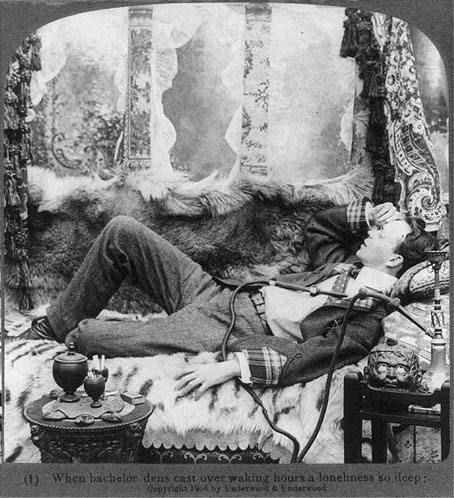
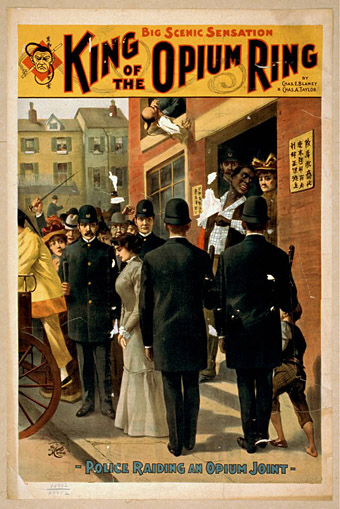
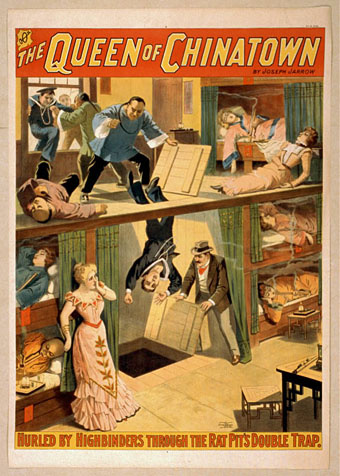
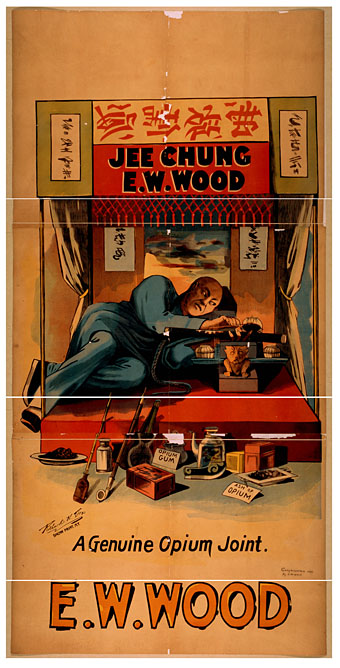
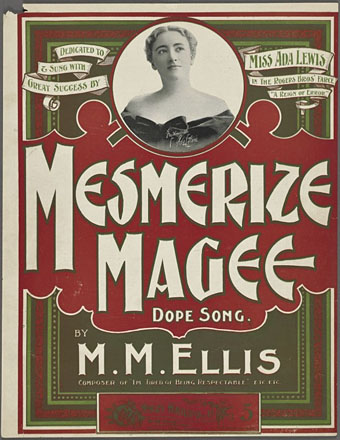
“When bachelor dens cast over waking hours a loneliness so deep”. Love that title!